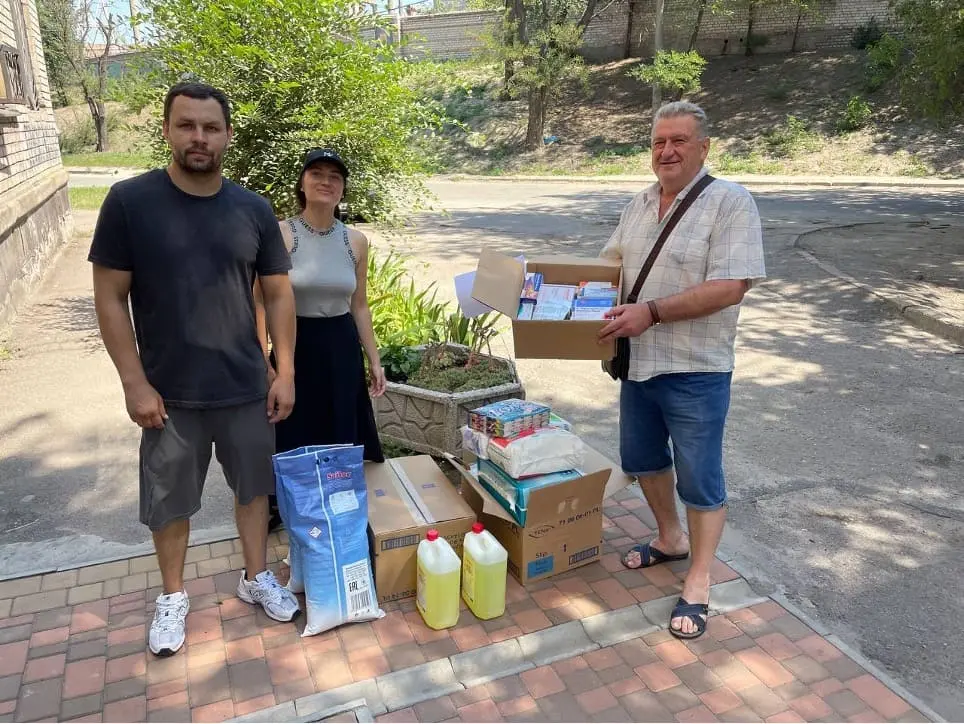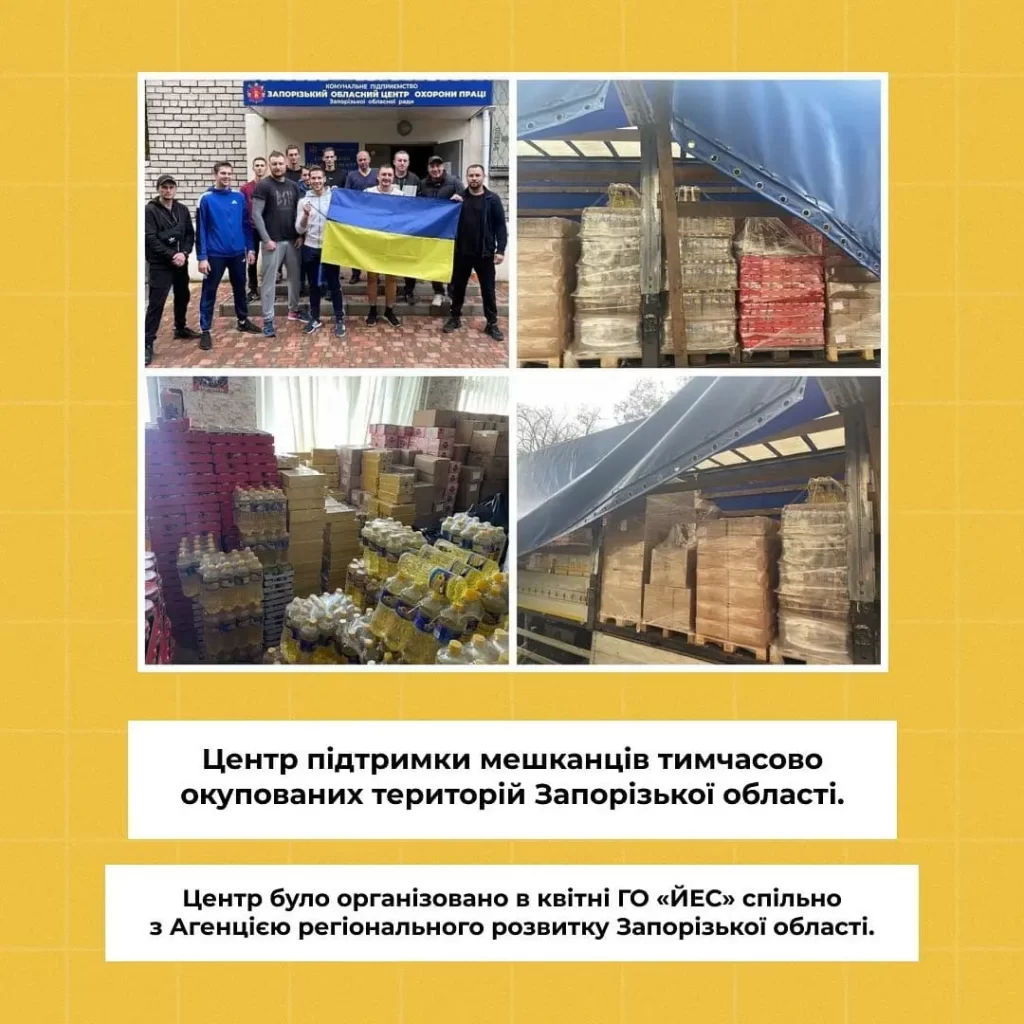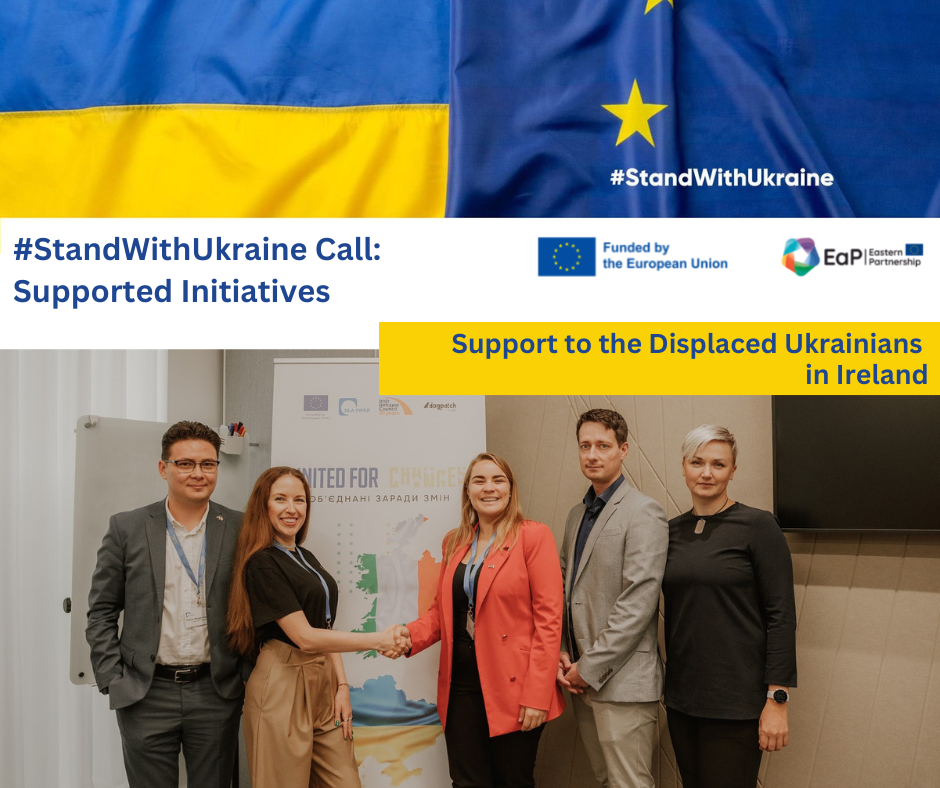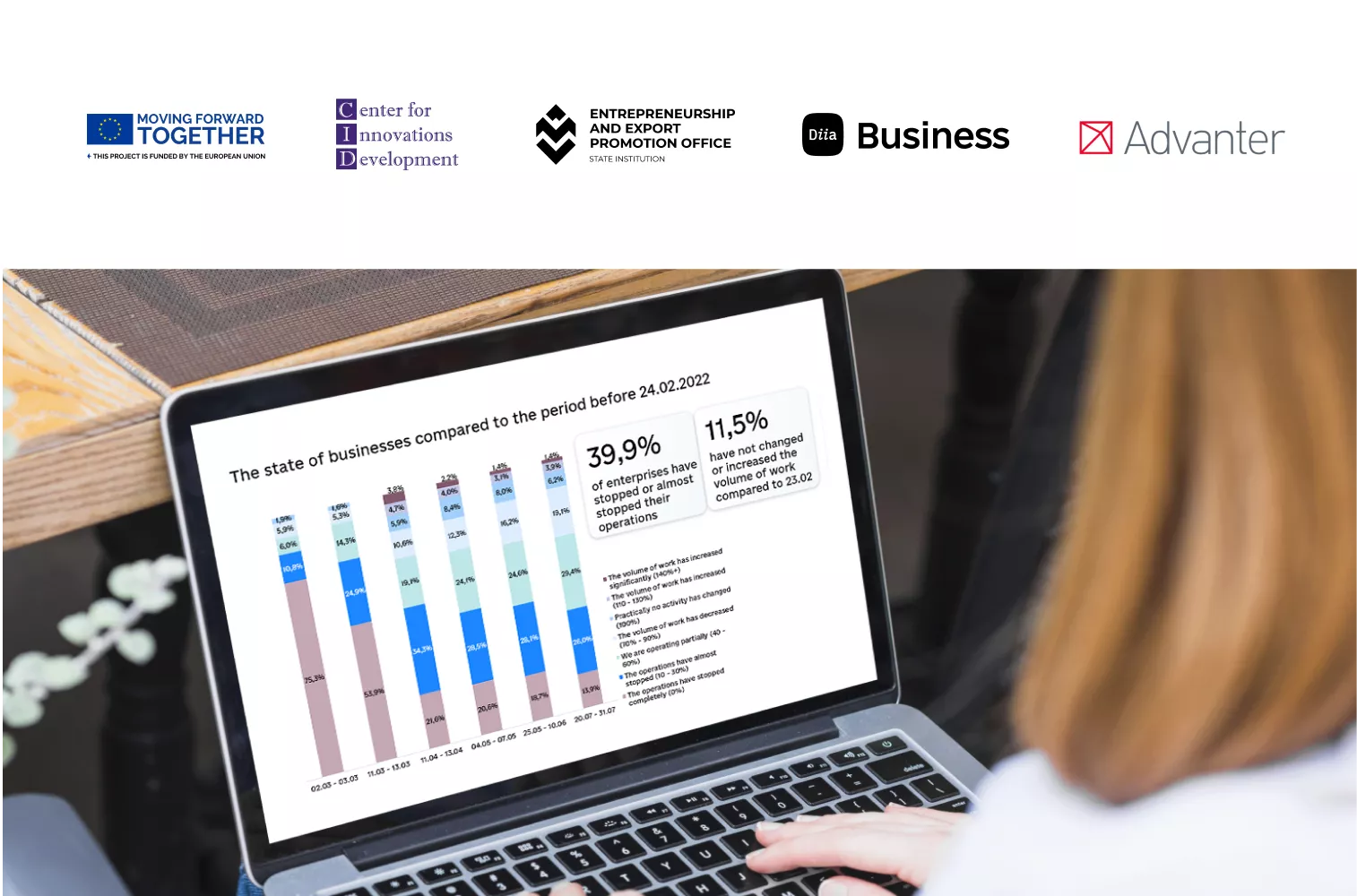 Zaporizhzhia is among the regions of Ukraine most affected by the ongoing war, with roughly two-thirds of the oblast territory being temporarily occupied.
Zaporizhzhia is among the regions of Ukraine most affected by the ongoing war, with roughly two-thirds of the oblast territory being temporarily occupied.
In June-October 2022, through its #StandWithUkraine call, the European Union supported the operations of the Centre for Support of Residents of the Temporarily Occupied Territories of Zaporizhzhia Oblast (further – the Support Centre), a joint initiative of local civil society and authorities, that supports people in the occupied communities and fosters the de-occupation by counteracting Russian disinformation.
Territory occupation breaks not only the supply chains, but also long-established communication channels, both vertical and horizonal, between those who – for various reasons – stay in the temporary occupied territories (ToTs) and those on the other side of the frontline, be these local or national officials, media or even friends and family members. As a result, the former lack basic goods and services and feel abandoned, while the latter lack information to address the needs in a meaningful way. Within this EU-funded action, the Support Centre team tried to unlock the situation by providing the stakeholders in Zaporizhzhia oblast and beyond with the information on the state of affairs in the oblast’s ToTs and recommendations for better communication with local residents, and by addressing the basic needs of those who stay in ToTs and frontline communities.
The analytical note on the situation in six main spheres (secondary and higher education, healthcare, SMEs, local self-government and humanitarian needs) in the ToTs of Zaporizhzhia oblast developed within the SwU initiative became the first public document of this kind, combining the experts’ opinions, government views, media reports and findings of the online survey of the Ukrainians staying in the ToT. This analysis received positive feedback form the stakeholders and civil society. “The report is about people and real-life situations and not just simple numbers. It is a very important report reflecting the realities of the temporarily occupied territories”, says Vasylii Doronin, political expert.
 Following on the findings of the conducted analysis, the Support Centre team in cooperation with local journalists developed recommendations for local and regional authorities to improve their communication efforts. This document contains 21 recommendations and was shared with local authorities and media and discussed at a closed round table organized in cooperation with Zaporizhzhia Regional Military Administration.
Following on the findings of the conducted analysis, the Support Centre team in cooperation with local journalists developed recommendations for local and regional authorities to improve their communication efforts. This document contains 21 recommendations and was shared with local authorities and media and discussed at a closed round table organized in cooperation with Zaporizhzhia Regional Military Administration.
At the same time, the team tried to directly address people’s needs. With the help of local administrations and activists, the Support Centre team collected many requests and delivered much needed medicine and hygienic items to seven frontline and temporary occupied communities of Zaporizhzhia oblast, helping at least 1,400 Ukrainians to survive.
To improve the morale of people in the ToTs and to increase their awareness of international and Ukrainian humanitarian efforts, the team conducted a communication campaign in social media. In less than one month, it reached more than 200,000 persons. Some posts became viral and were reposted 400+ times, for example, the post about Ukrainians’ plans after victory and de-occupation of the Zaporizhzhia region. People wrote about their dreams of what they would do when this happens, what places they would like to visit, etc. The post collected 47,400+ views, 417 reposts and 91 comments on Facebook and Instagram. The team managed to draw attention to the needs of citizens in the ToTs and the importance to inform them about Ukraine’s efforts to help them.
Background information:
The project “Support to the Humanitarian Headquarters for citizens of the temporary occupied territories (ToT) of Zaporizhzhia Oblast” is one of the initiatives supported by the European Union through our ‘Eastern Partnership Civil Society Facility project within the #StandWithUkraine Call launched on the 8th of April 2022, in response to the war in Ukraine. Through this Call we directly supported 14 initiatives, covering a wide range of topics: support to pregnant women during the war, support to IDPs in specific regions, first aid and safety trainings for volunteers and citizens, educational programmes for children, as well as support to preparatory work for economic recovery. In addition, 13 smaller scale initiatives were supported through the EaP Civil Society Fellowship programme. Find more about the results of the Call here and read the stories about other supported initiatives here.




